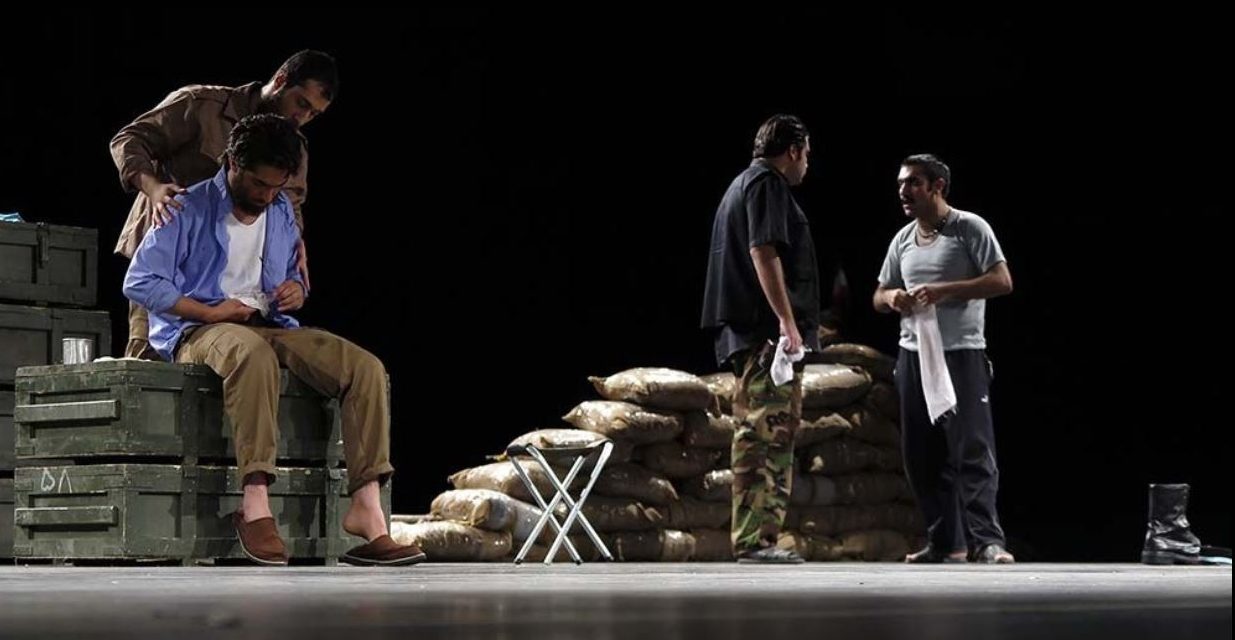The Whispers Behind the Battle Line is written by Alirezā Nāderi and directed by Mohammad Rezā Sattāri and is currently performed on the main space of Molavi Theatre in Tehran. The Whispers behind the Battle Line was directed previously by the playwright Alirezā Nāderi in 1995 and later revived by Ashkān Kheilnejad in 2002. It has been hailed as the best and yet the most controversial play about Iran-Iraq war. It was premiered at the 20th Fajr International Theater Festival in 1995 and won the festival prize for the best actor.
The Whispers Behind the Battle Line is a realistic portrayal of the quotidian life of common men who get involved in a war for different reasons, some for very earthly causes and even monetary benefits. It is set on a summer night during Ramadan (Muslim’s fasting month) in the midst of a temporary suspension between 1982 ceasefire and the resumption of fight in the same year between Iran and Iraq. As an anti-war play written by a war veteran, the play uses a bitter yet humorous tone to show what mobilised soldiers to come to the front line is neither spiritual value of martyrdom nor nationalist ideals. Only a few of these combatants believe in the government’s promoted narrative of “sacred defence” and are motivated to die for the cause of God. The ideological and verbal conflicts between this group and the rest entails several debates over forbidden issues about religion and politics. The play also is about unknown soldiers who were killed in action and is dedicated to the mothers who never stopped waiting for their dead sons.
Nāderi’s characterization and dramatic world animate politics, ethics and psychology of war as both a national and a global issue. Multi-dimensional characters and their lifelike actions and dialogues are rooted in a credible logic and genuine Iranian mentality. The new director Sattari follows the same thought and in his 90-minute production, he uses eight actors and a minimalist set design with a few war accessories.
In Nāderi’s plays, there is little to no trace of reference to propagandist or sentimental discourse about war unless with an ironic or satirical tone. Characters’ memoirs and their evocation dominate in forwarding the action of the play and access to characters’ internal psyche. Memory telling and verbal conflicts reveal the gap that has been formed between the characters’ past and present. What makes The Whispers Behind the Battle Line a controversial play is the play’s obvious references to the political facts and events, for instance, Palestinian- Israeli conflict and the necessity of religion. In this sense, it plays an interventionist role concerning the way Iran-Iraq war has been understood, remembered and represented.
This post was written by the author in their personal capacity.The opinions expressed in this article are the author’s own and do not reflect the view of The Theatre Times, their staff or collaborators.
This post was written by Marjan Moosavi.
The views expressed here belong to the author and do not necessarily reflect our views and opinions.


















